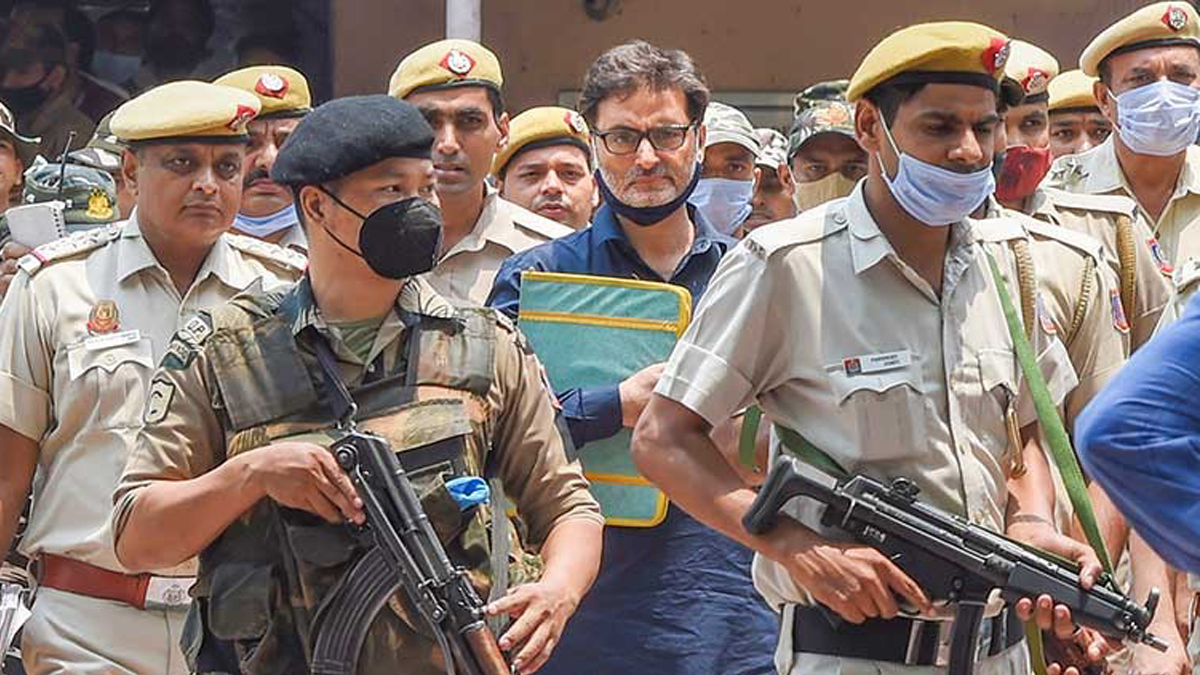The Supreme Court on Thursday remarked a makeshift courtroom could be set in prison to facilitate terror convict Yasin Malik’s cross-examination in two terror cases as the Central Bureau of Investigation challenged a Jammu Court’s order calling for his physical presence.
Malik is currently imprisoned in Tihar prison and the central agency is opposing Malik’s appearance in Jammu Special Court citing security reasons. Hearing CBI’s plea challenging Jammu Court’s order, a bench comprising Justices Abhay S. Oka and Augustine George Masih directed authorities to find out the number of witnesses in the case.
"In our country, a fair trial was given even to Ajmal Kasab... A courtroom can be set up in jail and it can be done there, just find out how many witnesses. Even witnesses will need security. We need to see how the judge will be posted in jail only for this court," Bar and Bench reported quoting the bench.
Also read
- Senthil Balaji: Supreme Court issues notice to Tamil Nadu government asking...
- Former bureaucrats, activists move SC against Yati Narasinghanand’s Dharam Sansad in UP
- Places of Worship Act: SC restricts courts from ordering surveys, registering fresh pleas
- Atul Subhash suicide: Here's what Supreme Court said on misuse of cruelty laws in marital disputes
The Jammu Special Court has ordered the physical appearance of Malik for his cross-examination in two cases – the 1989 kidnapping of Rubaiya Sayeed, daughter of former Jammu and Kashmir CM Mehbooba Mufti and the killing of four Indian Air Force personnel on the outskirts of Srinagar in 1990.
The bench asked how cross-examination in a case can be conducted through video conferencing when the central agency informed the apex court that they did not wish to take Malik to Jammu and Kashmir for trial. Solicitor General Tushar Mehta argued that the government cannot go by books in such cases and if Malik is adamant that he will appear personally, then the trial can be shifted to Delhi.



